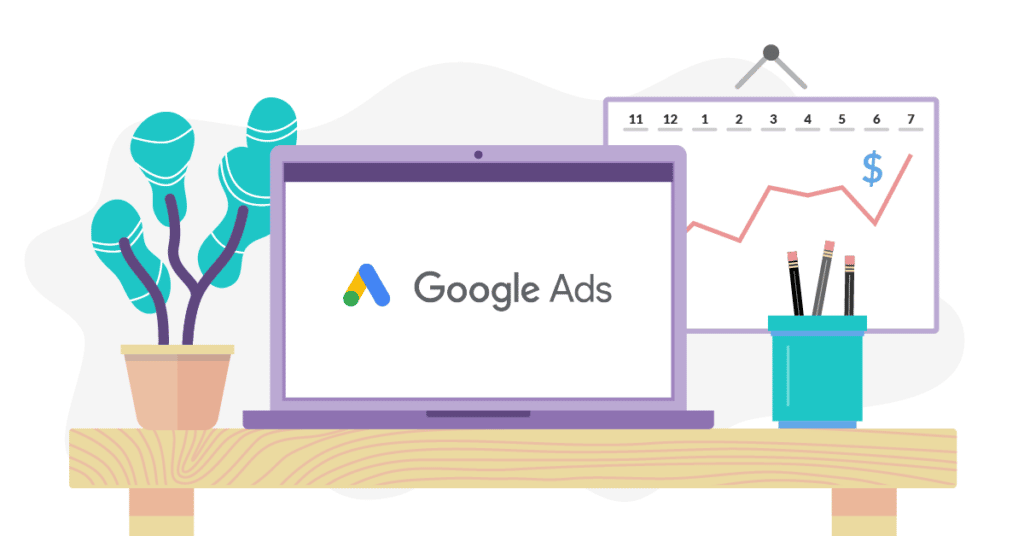
How To Maximize Sales With Google Ads for eCommerce
There is a reason why Google Search Ads are so competitive for ecommerce stores. Because it works. Ecommerce companies use Google Ads to help build their brands and grow their sales.
Navigating the robust Google Ads platform can seem like a daunting task. But it only takes a plan, the right strategy, and a little follow-through to create a successful campaign that drives conversions and grows and marketing your business. And it’s definitely worth it. According to Google, businesses on average see a return of $8 for every $1 spent on search ads.
why are Google Ads so important for your eCommerce Business?
Because by combining a variety of Google Ads campaign types with other digital marketing strategies such as Facebook and email, advertisers are able to reach the right potential shoppers at the right time. Without the right Google Ads campaigns, you’re quite literally leaving money on the table – a lot of money. When you consider that Google has a whopping 90% of the global search engine market with 5.6 billion searches done every single day, not including Google Ads in your strategy can spell doom for your eCommerce business and overall PPC campaign strategy.
What Are the Best Types of Google Ads for eCommerce?
Here are the top types of Google Ads that every eCommerce store brand should be testing in their marketing strategy.
1. Google Search Ads
In the Google Search Network, text ad search campaigns show on the top, bottom or side of search results. Based on the search terms a shopper uses, these ads include a headline, display URL and description.
2. Dynamic Search Ads (DSAs)
If you have a more extensive inventory, then DSAs offer automatic element optimization to boost results. Drawing on web content, Google dynamically creates these search ads to best suit the searcher. Meaning it helps you automatically create a text ad for people who are actually searching for the products you are selling
As powerful as these ads can be for generating good traffic, these text ad campaigns are not ideal to jump into from day one of advertising your eCommerce store. A beginner PPC ad marketer should test text ad and shopping campaigns first, and wait until they have a steady flow of traffic. Additionally, we don’t recommend these campaign types if you have limited products and content pages as these mean limited keyword potential.
3. Google Remarketing Ads
Remarketing is another must-have eCommerce PPC ad campaign type for online stores. There is a variety of remarketing ad types you can test, including customer list remarketing, display remarketing lists, dynamic remarketing, remarketing lists for search ads and video remarketing. The benefits of these campaigns are impressive. These include the ability to reach more potential shoppers with more focused messaging for less spend.
The secret to creating Google remarketing ads lies in the creation of your remarketing lists. But it’s important to note that to use RLSAs (Remarketing Lists for Search Ads) you need to have at least 1,000 active cookies.
5. Smart Google Shopping (Performance Max) Campaigns
Combining a standard Shopping ad campaign and display remarketing, Smart Google Shopping Campaigns are designed to simplify your PPC campaign management, maximize your conversion rates, and expand your reach to your optimum target audience. AKA shoppers with high buying intent. The biggest advantage to adding Smart Shopping campaigns to your PPC campaign strategy are:
- Easy integration into your eCommerce platform
- Streamlined Shopping ad optimization
- Automated bidding



